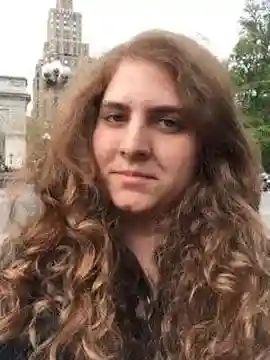There’s no One True Way to be a writer. Instead, everybody has their own path to success, their own process, their own stories to tell. Some writers write every day at 4 a.m. with a cup of coffee and the mighty roar of a powerful grizzly bear. Good on them. Others write for a full day in a frenzy of inspiration and activity, lay back and slip into a catatonic state for weeks, and repeat. And there’s so many in between.
All this to say: any advice you see about writing should be framed as a potential option. Anyone who gives advice that will supposedly apply to every writer has a…woefully overinflated ego. That’s just how it is.
And now I will proceed to give some writing advice: if you have the option to go to college and choose a humanities major, choose creative writing. Here’s why it worked for me, and why I think it might work for you.
1. Workshops
One of my very favorite things about creative writing courses in college was the workshops. Mostly the ones where my work was being critiqued, because as much as I love giving advice, I much prefer to find out how my own work can be strengthened. Workshops are hit-or-miss, though, because if your instructor doesn’t stress the importance of sharing what’s working as much as what’s not working…they can really suck. When done well, a workshop is basically an expedited critique partner material swap, where you get an overload of information that will help you refine your work, all at once, and then have the time to sit down with it, sift through it, and take what you appreciate while leaving what doesn’t work for you.
2. Friendships with writing peers
I mentioned critique partners above, and the friends you make in a creative writing program in college are often a writer’s first experience with a critique partner. For me, it was one of the first times in my life that I had a core group of friends who shared not just my love of writing, but my dedication to it as a future career. We could connect on a deeper level, have a true understanding of what each other was going through, and generally truly “get” each other. After the program ended, I kept in touch with the few whom I’d really connected with, and had a better understanding of what to look for in a critique partner.
3. Guidance from mentors
Oh, man, this is one of the best parts! There is so much to learn from those who’ve already made a career for themselves. Even if you don’t plan to pursue the exact same writing path (my professor was a writer of short stories, generally for adults, and I want to write novels for young adults), they have wisdom to impart on how the industry works, what you need to work on to improve…and they’re always there with encouragement and maybe some chocolate if you get rejected (which you will. It’s inevitable).
4. You have to write, so there's no guilt
Once you have a traditional “day job,” social commitments, possibly a family—it’s hard to find time to write. And when you do find a sliver of time, it’s so often that you’re filled with guilt about using it to write, especially because so much of writing is done with no assurance of pay. And we live in such a capitalistic society that any activity which doesn’t lead to a payday is…likely to garner a few confused stares. If you’re studying creative writing though, and your writing will affect your grade? No more guilt!
5. Lends gravitas to your choice (which is important for personal reasons)
Listen, back to our society: we live in a society that appreciates art but doesn’t value it on a monetary level, and doesn’t put its money where its mouth is when it comes to supporting art. So choosing to major in writing, and make a career out of it? It’s a risky move. So many people will greet your decision with either outright disdain (“What, you really want to work at Starbucks?”) or a facade of acceptance that merely hides their lack of belief (“Sure, she’s in New York being a writer now, but pretty soon she’ll come home and get a real job.”) The fact that I hold a BA in writing doesn’t really convince anyone else of the realness of this career, but it does remind me that this is a choice, this is a calling, this is a career.
Of course, you may not be able to major in creative writing. You may not want to. You may not feel you need to. It worked for me, and I know it’s worked for others. But only you can choose your own writing journey. Go forth, and write!

About the author
Karis Rogerson is a mid-20s aspiring author who lives in Brooklyn and works at a cafe—so totally that person they warn you about when you declare your English major. In addition to embracing the cliched nature of her life, she spends her days reading, binge-watching cop shows (Olivia Benson is her favorite character) and fangirling about all things literary, New York and selfie-related. You can find her other writing on her website and maybe someday you’ll be able to buy her novels.








